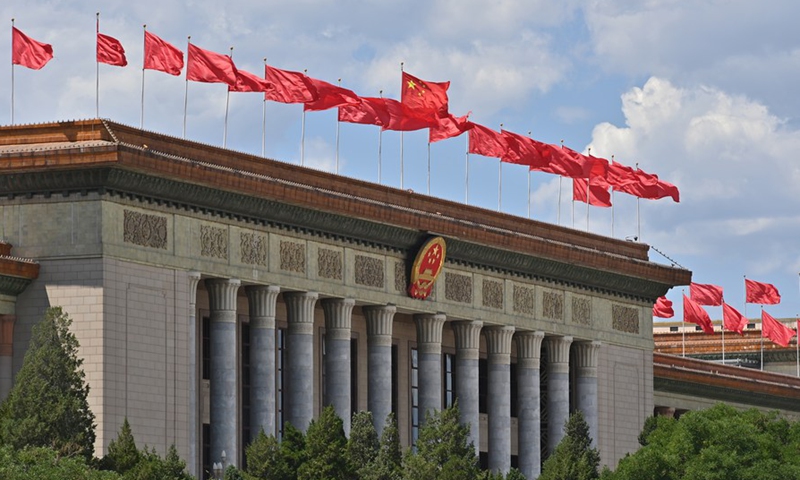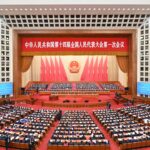Move to enhance whole-process people’s democracy
China’s national legislature adopted on Monday a revision to the Legislation Law, which has been hailed by Chinese lawmakers and political advisors as a significant step in enhancing the full-scale leadership of the Communist Party of China (CPC) over legislation work and developing whole-process people’s democracy with innovative moves that keep up with the times.
The revision to the Legislation Law – the basic law that regulates the national legislative system – was adopted at the closing meeting of the first session of the 14th National People’s Congress (NPC). The revision improves the guiding principle with the aim of increasing the high quality of legislation work and enhancing the implementation and supervision of constitutional laws.
A major part of the latest revision involves giving the NPC exclusive legislative authority over the “establishment, organization, functions, and powers” of supervision commissions.
It also clarifies that the National Commission of Supervisioncan formulate supervisory laws and regulations in line with the Constitution, law and the decision of the NPC Standing Committee. It grants the National Commission of Supervision authority to request review of regulations. The National Commission of Supervision can also formulate supervisory regulations and report them to the NPC Standing Committee for recording.
The revision helps improve the legislation, especially giving the legal basis for our supervisory institution in formulating relevant regulations, which is very significant for increasing the overall authority of our supervisory laws and regulations, Li Zhengguo, a member of the 14th National Committee of the Chinese People’s Political Consultative Conference (CPPCC), told the Global Times on Monday.
Li, who is also the vice president of the Sichuan Lawyers Association, noted that the overall Legislation Law amendment is in keeping with the times, reflecting major progress that the country has made in practicing the rule of law and new experiences accumulated since China’s opening-up and reform.
“Besides the regulations in the supervisory system, there has been innovation in regional coordination, for example, in cross-region legislative coordination and clarifying certain authority,” Li said.
The revision also adds “grass-roots governance” to the legislative authority of cities that include districts, and changes “environmental protection” to “ecological civilization construction,” which also means that the authority of legislation at city level will further expand, laying the foundation for regional high-quality development.
“The move will also further motivate cities and regions to take the initiative in local governance, rolling out more practical policies,” Li said.
On improving the legislative procedures and working mechanisms of the NPC and its Standing Committee, the draft proposes detailed requirements of the constitutionality review and the recording and review system for legislations and normative documents, according to the Xinhua News Agency.
In particular, the draft requires a bill’s explanatory document to include opinions on issues of constitutionality, and calls on the NPC Constitution and Law Committee to explain issues of constitutionality involved after reviewing a bill, Xinhua said.
It also introduces an emergency lawmaking procedure for the NPC Standing Committee, in which a bill may be put to a vote after a single deliberation at the Standing Committee.
“The draft revision improves and enriches the general provisions, and further strengthens the implementation and oversight of the Constitution, among which improving the recording and review system is the top priority,” Priscilla Leung Mei-fun, a deputy to the 14th NPC from Hong Kong, told the Global Times in a recent interview.
China’s recording and review system has also been upgraded to a legal system in the draft revision, including clarifying the description of the draft law and the constitutionality requirements in the recording and review work, which is a reflection of the great progress in the rule of law in China, playing an important role in China’s legal reform, Leung noted.
(Global Times)




